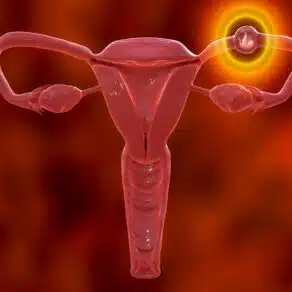Introduction:
In the landscape of healthcare, the Women’s Health Initiative (WHI) stands as a beacon of empowerment, dedicated to unraveling the complexities of women’s health. Launched in 1991, this monumental study has catalyzed significant advancements in understanding, treating, and advocating for women’s well-being. Delving into the WHI’s origins, impact, and ongoing relevance unveils a narrative of progress, challenges, and the tireless pursuit of better health outcomes for women everywhere.
Table of contents
Origins of the Women’s Health Initiative:
The Women’s Health Initiative emerged in response to a critical need for comprehensive research on women’s health issues. Initiated by the U.S. National Institutes of Health (NIH), this landmark study aimed to address the gaps in knowledge surrounding common conditions affecting women, such as cardiovascular disease, cancer, and osteoporosis. With a diverse cohort of over 160,000 women aged 50-79, the WHI embarked on a journey to uncover pivotal insights that would shape healthcare practices for generations to come.
Key Findings and Impact:
Over its three-decade span, the WHI has yielded a plethora of groundbreaking findings, reshaping medical paradigms and influencing clinical guidelines worldwide. Among its notable contributions are revelations regarding hormone therapy, dietary interventions, and preventive measures against chronic diseases. One of the most significant discoveries was the nuanced understanding of hormone replacement therapy’s risks and benefits, revolutionizing menopausal healthcare practices and emphasizing personalized approaches to treatment.
Moreover, the WHI’s emphasis on lifestyle interventions underscored the importance of diet, exercise, and behavioral modifications in mitigating disease risk factors. By promoting healthier habits and advocating for preventive care, the initiative has empowered women to take proactive steps towards safeguarding their well-being. Furthermore, the WHI’s commitment to diversity and inclusion in research has fostered equitable access to healthcare resources and tailored interventions for underserved populations.
Ongoing Relevance and Future Directions:
Amidst a changing healthcare landscape, the Women’s Health Initiative persists as a beacon of progress. With interdisciplinary collaboration and advanced methodologies, it’s positioned to unravel women’s health intricacies with precision.
Frequently Asked Questions (FAQs):
The Women’s Health Initiative is a pioneering research study initiated by the U.S. The NIH launched the initiative in 1991 to study prevalent women’s health issues like cardiovascular disease, cancer, and osteoporosis.
The WHI has yielded significant insights into hormone therapy, dietary interventions, and preventive measures against chronic diseases. Notably, it has reshaped menopausal healthcare practices by elucidating the risks and benefits of hormone replacement therapy.
The WHI has influenced clinical guidelines, promoted healthier lifestyles, and fostered equitable access to healthcare resources. By empowering women with knowledge and resources, it has catalyzed positive changes in healthcare practices and outcomes.
As we move forward, the WHI remains committed to advancing women’s health through evidence-based research and advocacy. By innovating and collaborating, it aims to tackle new health challenges and equip women with essential tools for success.
Conclusion:
The Women’s Health Initiative stands as a testament to the power of research, advocacy, and collaboration in advancing women’s health. From its inception to its enduring influence, the WHI showcases the power of focused endeavors in understanding human health complexities. As we honor its legacy and gaze ahead, let’s champion initiatives prioritizing women’s well-being, aiming for a world where every woman thrives in health and fulfillment.




